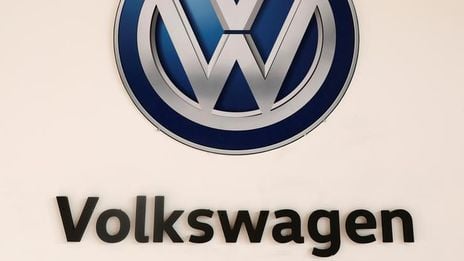BERLIN (dpa-AFX) - 7.3 percent more cars were newly registered in Germany last year than in 2022. According to figures released by the Federal Motor Transport Authority on Thursday, 2.84 million new cars were registered on German roads in the past twelve months. The number of new commercial registrations in particular rose sharply, while slightly fewer private cars were newly registered than in 2022. Two thirds of all new registrations were company cars. Around 524,000 of the newly registered cars were all-electric vehicles - an increase of 11.4% compared to 2022. The share of all new car registrations accounted for by all-electric cars was 18.4% (2022: 17.7%).
"The surprising complete end to the state purchase premium will lead to a decline in new electric car registrations this year," predicted Felix Gall, Head of Mobility at management consultancy EY, for the coming months. "The market for electric cars is not yet standing on its own two feet, but is dependent on state subsidies. Where there is no demand for and investment in a good charging infrastructure, only a few electric cars will be sold," said Gall in a press release.
Uncertainty around 2024 due to stopped premium for e-cars
The German government had actually planned to grant a purchase premium of up to 4,500 euros for new electric cars until the end of 2023. In addition, the manufacturers were to receive half of the bonus, i.e. up to 2250 euros. On January 1, 2024, the state bonus was to be reduced to 3000 euros and then expire at the end of 2024. Because the federal government had to correct its budget planning, this requirement was abruptly dropped in mid-December. However, numerous car manufacturers subsequently announced that they would pay the premiums themselves. For many buyers, the price of a new vehicle has therefore not changed, at least for the time being.
However, these financial offers from manufacturers will not remain in place permanently. A comparison between December 2022 and December 2023 shows that consumers are responding to other demands, in some cases significantly so: According to the KBA, around 54,7000 pure electric cars were newly registered in the last month of 2023, compared to almost twice as many in the same month last year.
At the end of 2022, however, the purchase of pure electric cars was even more strongly demanded by the state, many interested parties brought forward their purchases and thus ensured unusually high new registration figures. Only the next few months will show whether the abrupt halt to the requirement in mid-December will have similar consequences.
EY expert Gall predicted on Thursday that the electric car segment will fail to drive growth in the coming months. The new car market as a whole will stagnate at the current low level - and thus well below pre-corona levels. "It's quite possible that 2024 will be a lost year for the automotive industry."
Tough Chinese competition for German car manufacturers
Car production in Germany has grown significantly faster than the number of new registrations, namely by 18% to 4.1 million cars. However, according to the German Association of the Automotive Industry (VDA), production was still 12% lower than in 2019, the year before the crisis. According to the VDA, 3.1 million cars from German plants were exported (up 17%).
The largest car market in the world is China, which is also the most important single market for the German manufacturers Volkswagen (including its subsidiaries Audi and Porsche), BMW and Mercedes-Benz. However, competition is becoming increasingly fierce, especially for mass manufacturers. Chinese manufacturers are giving the competition a hard time, especially when it comes to electric cars. With its strong growth in the fourth quarter, the Chinese market leader and electric car manufacturer BYD also overtook the previous electric car leader Tesla worldwide.
In Germany, BYD vehicles are still rarely seen on the roads. According to the KBA, just over 4,100 vehicles from this manufacturer were newly registered in 2023 - that is less than one percent of new electric car registrations./nif/DP/jha





